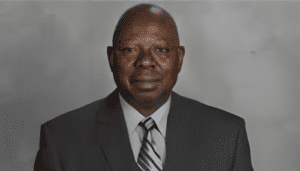
Imperatives for inclusive approach to war against drug abuse
Mentally challenged, Manford Masuayiki (not real name) 25, is a brilliant medical undergraduate and from a wealthy home.
However, Masuayiki has been out of school for three consecutive years and currently squatting under a make-shift structure in one of the flyovers in Enugu.
He had already squandered over N2 million deposited for his education and upkeep on clubbing and taking of crack cocaine at the cost of N30,000 per broom-stick measurement.
At a giveaway prize, he sold a Camry Toyota car gifted to him by his father for his exceptional performance in his WAEC exam and UTME.
Masuayiki also lost his friend, John, both used to take hard drugs together to a failed supermarket robbery operation. They undertook the misadventure to fund their drug addiction.
Three years ago, his parents for the umpteenth time, did all they could to salvage Masuayiki from the ruins of drugs.
He was introduced to drugs by his friends in his secondary school. They usually had cannabis together. All efforts to wean him off drug have so far failed.
This scenario is replicated among many youths across the country
In addition to the narrative drugs and substance abuse have several other implications for the society.
It was reported recently that a 32-year-old man, Samson Sikiru, said to be a drug addict, on Sunday, allegedly strangulated his mother to death, in Itanrin, in Ijebu-Ode Local Government Area of Ogun State.
The Police Public Relations Officer in Ogun, Omotola Odutola, confirmed the incident, saying the command was aware of the incident.
According to Odutola, the suspect is currently a neuropsychiatric patient.
According to a survey on drug use in Nigeria conducted by the United Nations Office on Drug and Crime (UNODC), those between the ages of 25 and 39 have the greatest rate of drug and substance use during the previous year.
Prof. Monday Igwe, the Medical Director of Federal Neuropsychiatric Hospital, Enugu, said in some cases, societal values could drive drug and substance abuse.
“Many people in families and communities still view drug use or drug users as a form of moral failure; and as a result, are less empathetic to individuals afflicted.
“Therefore, punitive methods and ideologies to address it (drug addiction) are still widespread in many families and communities, which is highly counterproductive,” he said.
Igwe said though cannabis is the most often used illicit substance alcohol is the most abused.
The medical director, however, said that drugs and substances abuse may vary according to advancement in use of psychoactive substances such as using meth or crack cocaine as well as age and occupation.
He urged concerted efforts from all stakeholders involved in the fight against drug no effort should be spared to ensure that children did not emulate bad life styles.
He said drug addicts needed medical attention carried out through empathy and love.
Collaborating, CSP Ebere Amaraizu, National Coordinator of Police Campaign Against Cultism and Other Vices (POCACOV), said no one should sit on the fence in the war against drug and substance abuse.
Amaraizu said with the growing rate of the menace among youths, there was the need for parents, educators, law enforcement agencies, community leaders among other stakeholders to take more practical actions against the threat.
He said that abuse was responsible for a substantial percentage of crimes committed by young people and their mental health challenges.
According to him, drug and substance abuse creates an unsafe environment in communities.
“So community members must therefore not sit on the fence but should rise to the challenge by joining hands to raise awareness against it.
“All and sundry must join hands to strengthen resilience, raise more awareness and help to build a strong society against drug/substance abuse.
“Those living on drugs are in difficulties. We should not stigmatise and discriminate against them but to see how they can navigate and return to them to normal life,” he said.
Mrs Nnenna Anozie, a human rights activist, said tackling the challenge also depended largely on the ability of youths to resist negative peer pressure.
“You must not fall to cheap blackmail or threat by any drug peddler or even your peers that engage in drug/substance intake.
“Do not listen to deceivers, who are out to ruin your future and entire life,” Anozie said in an interview.
She admonished youths to be open to their parents and guardians and learn how to “voice out if pressured to take drugs and substances substance by anybody or group.”
The Founder of David Folaranmi Foundation, Mr David Folaranmi agrees the starting point if for youths to resist such influences.
“Always learn to say ‘NO’ to any friend, neighbour and even family relation that wants you to taste it or just take a little,” he said.
He said although the Federal Government through the National Drug Law Enforcement Agency (NDLEA) was doing its best to rid the country of illicit drug and abuse, it should be supported by all and sundry.
“However, we cannot leave it for the federal or state government alone. We have to contribute our little quota.
“There is a need for the private sector, individuals, NGOs, faith-based organisations and everybody to join this noble fight to rescue our youths from the negative consequences of drug and substance abuse,” he said
Folaranmi, who is also the Executive Director of the Live Free Renewal Centre, called on youths to ensure abstain from drug or psychoactive substance notwithstanding how good it is being marketed or advertised.
The activist advised parents not to be unnecessarily harsh on their child or children but to patiently understudy them by creating avenues for parent-child bonding with a view to knowing when they are being negatively influenced by peers, relatives and neighbours.



